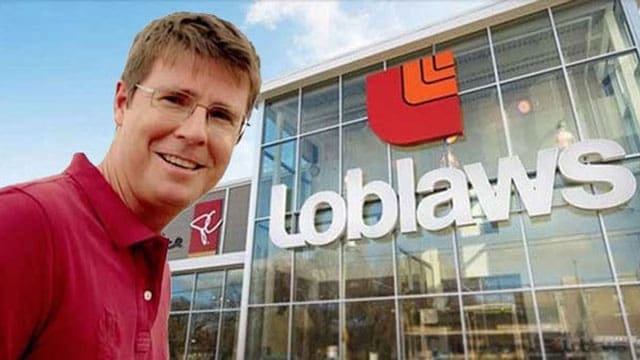Are we nearing the end of the food industry monopoly in Canada?
 While the parliamentary investigation into food inflation leans towards political theatrics, the real intrigue lies in the Competition Bureau’s study on the food industry, announced last fall. The Bureau has faced mounting criticism since last year for its perceived failure to foster competitive practices in the food sector, which has left consumers grappling with high food prices.
While the parliamentary investigation into food inflation leans towards political theatrics, the real intrigue lies in the Competition Bureau’s study on the food industry, announced last fall. The Bureau has faced mounting criticism since last year for its perceived failure to foster competitive practices in the food sector, which has left consumers grappling with high food prices.
Canada’s food retail industry is essentially monopolized by a few key players. Over 85 percent of all food purchases in the country are through Loblaw, Empire/Sobeys, Metro, Walmart, and Costco. Despite this, the Competition Bureau did nothing to prevent this monopolization.
But rumours in the food industry suggest that things are about to change.
Over the years, the Bureau has green-lit many significant transactions, such as Loblaw’s acquisition of Provigo in 1998, Metro and A&P in 2005, and Empire/Sobeys and Safeway in 2013. The recent spike in food prices has illuminated the lack of competition in food retail, while also reminding Canadians of the industry’s controversial past.
One such controversy is the bread price-fixing scheme that allegedly occurred between 2001 and 2015 and which has been back in the news in recent months. Despite the investigation being ongoing for eight years, no progress has been reported, making Canadians wonder what the Competition Bureau has been up to for the past eight years. It was in December of 2017 that Loblaws declared itself as the proverbial ”whistle-blower” and gave all Canadians a $25 gift card to spend in their stores. Since then we have heard nothing about the investigation; no accusations, no fines and nobody sent to prison.
All we know is that by disclosing the identities of its purported conspirators and collaborating with the Competition Bureau’s inquiry, Loblaw, and Weston Bakeries, owned by Loblaw at the time and since sold, obtained protection from legal action. In essence, ills at the grocery store prompted Canadians to feel unprotected and vulnerable.
Rumours now suggest that the Competition Bureau is poised to make substantial breakthroughs. Nothing confirmed of course, but things have been weird. The Bureau has committed to making its study on the food industry public by the end of this month.
This development has left many industry experts on edge, prompting many to play nice or stay quiet.
We know now that Galen Weston who was himself at the centre of the bread price-fixing scandal announced he will leave his post as President in less than a year. Since he announced his replacement, he completely disappeared from airwaves and TV commercials for the company. His voice can be heard in the background of some commercials, but that’s the extent of it.
Michael McCain is another industry leader who has completely disappeared. The President and CEO of Maple Leaf Foods also announced he was leaving his position next year. He too was embroiled in the bread price-fixing scandal as the former owner of Canada Bread, which was sold in 2014, a year before the bread investigation started. Interesting coincidence.
Court documents from 2021 unveiled those emails between high-ranking industry executives, including some at Maple Leaf Foods, suggest an intention to synchronize meat prices, resembling the alleged co-ordination of bread prices. That right, meat. Because of the pandemic, this story barely made headlines, but the food industry is fully aware that the Bureau has evidence that something was up.
Eric Laflèche, the President and CEO of Métro, gave a rare interview in Montreal recently and openly endorsed the code of conduct for the first time. It surprised many. The code of conduct promises to bring more discipline and competition to the marketplace, and Metro has never been warm to the idea, that is until now. Many leaders like Laflèche are now recognising that things can improve, and some solutions ought to be considered. Again, an unexpected predicament from another leader.
One can only guess that the next few months will be interesting. With a government desperate to show Canadians how they are helping families with inflation, a more relevant Bureau may be what Ottawa needs right now. And that is why the industry is very nervous these days.
Dr. Sylvain Charlebois is senior director of the agri-food analytics lab and a professor in food distribution and policy at Dalhousie University.
For interview requests, click here.
The opinions expressed by our columnists and contributors are theirs alone and do not inherently or expressly reflect the views of our publication.
© Troy Media
Troy Media is an editorial content provider to media outlets and its own hosted community news outlets across Canada.


